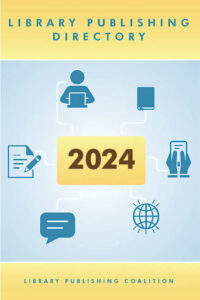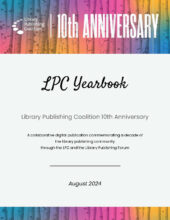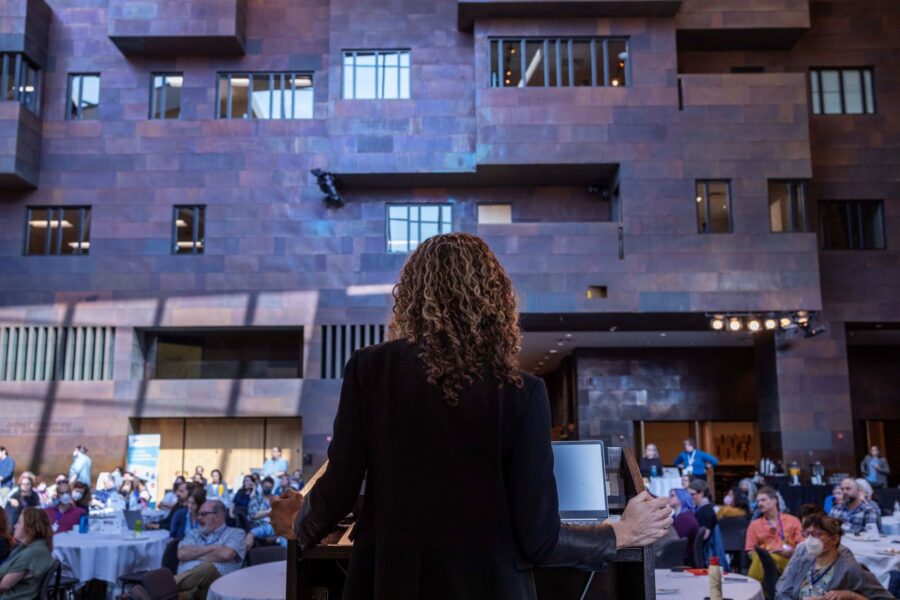Second round of our platform accessibility investigation
By Melanie Schlosser
About these investigations: LPC has been taking an all-hands-on-deck approach to web accessibility for the last year. The updates to Title II of the Americans with Disabilities Act – as well as similar regulations in other parts of the world – are aligned with our values as a community, but will take substantial effort to comply with for most library publishers. To support this work, LPC has teamed up with the Library Accessibility Alliance to provide a variety of professional development opportunities. Looking outward, we are also using our position as a community hub to investigate one of the elements of web accessibility that library publishers can’t control individually – publishing platforms.
Round one: See our February 12 blog post for a description of our methods and the results of our first round of investigations, which included OJS, Pressbooks, and Janeway. After the blog post was published, we hosted a series of community calls – one for each platform – so LPC members could speak directly with platform developers and representatives about accessibility.
Round two: This post is reporting out on our second round of platform outreach, in which we contacted DSpace, Omeka, Fulcrum, Manifold, and Digital Commons (again).
The question set: We used the same set of questions as round one:
Testing
- What technical or legal conformance standard have you adopted for your product(s)?
- How do you test for accessibility?
- Do you test all areas of your platform (e.g. reader interface, author interface, editorial interface, admin interface) and your user-facing documentation (including online product documentation and help/support resources)?
Development
- Do you have a development roadmap for increasing accessibility? Can you share it?
- Do you have a process for collecting and responding to user reports of accessibility errors? Are those reports treated as bugs or feature requests?
- Do you have a process for development contributors to submit fixes for accessibility issues?
Content and customizations
- How do you support/encourage users in creating accessible content?
- How do you support/encourage developers to maintain accessibility in local customizations?
Documentation
- Does your company have an internal digital accessibility policy (or equivalent) and public accessibility statement? If so, please provide the URL.
- Do you have a VPAT or other accessibility information on your website? If so, provide a URL. If not, can you provide your latest Voluntary Product Accessibility Template (VPAT) or Accessibility Conformance Report (ACR)?
Responses: We received full responses from DSpace, Omeka, and Fulcrum. Manifold asked to respond in the fall once they finish a round of development. Digital Commons continues to not get back to us.
Results: The responses received from the three platforms were very similar to those provided by PKP, Pressbooks, and Janeway. A summary of previous platform responses can be found in this blog post. A notable difference between the two groups is related to content and customizations. Currently, only Fulcrum provides resources to help users create accessible content (Omeka and DSpace indicated that they are exploring additional ways to encourage/support accessibility).
- Accessibility information
-
- Fulcrum provides a public accessibility roadmap; DSpace incorporates accessibility features into the roadmap for major releases.
- All platforms have publicly available VPATs (Voluntary Product Accessibility Templates): DSpace, Omeka, Fulcrum
We will share the full answers from each platform with the LPC community via email.
Next steps: We will follow up with Manifold in the fall and will share their responses with the community.





 Our thanks to the LPC community for celebrating our 10th anniversary with us over the last year! We’ve had some great conversations (both nostalgic and
Our thanks to the LPC community for celebrating our 10th anniversary with us over the last year! We’ve had some great conversations (both nostalgic and 
